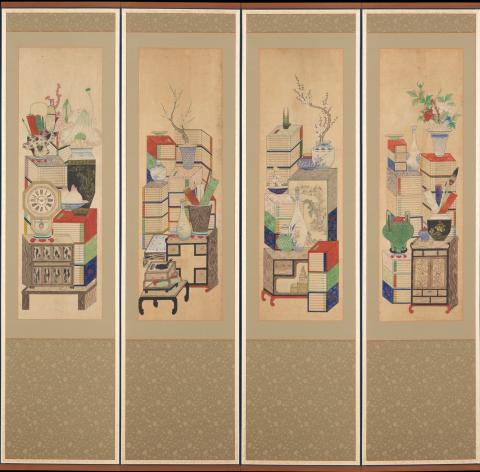Joel Christensen
May 30, 2017
The idiosyncratic Greek encyclopedia from the 10th century CE known as “The Suda” (from the Greek word souda, meaning “fortress” or “stronghold”) is filled with fascinating assertions, cultural minutiae, and enough gossip for a lifetime of anecdotes. Suda On Line (SOL) is the first and only translation of the entire Suda into a modern language, and it presents in some ways a model for digital scholarship, even twenty years after its inception. A team of seven managing editors, seventy-five editors, and over 125 contributing translators created it (a history of the project is available here). SOL is open to contributions from users; each entry is marked with a history of who translated it, who provided comments, and what, if any, editorial interventions were performed later. Anyone able to translate Greek may apply to be an editor, “regardless of formal credentials and specialization.”
The base text for SOL is taken from the edition of Ada Adler (5 volumes, Leipzig: Teubner, 1928–1938, reprinted 1971), provided by the Thesaurus Linguae Graecae. As a result, users of SOL encounter what appears to be a canonical text with no variant readings. A remedy for this is would be for users and editors to incorporate alternative readings into the entries.
Headwords appear in the original Greek (with an option for transliteration into Roman characters) and English translation. There follow notes, keyword tags, attribution information, and an option for PDF download.

A typical entry, with headword, translation, notes, keyword tags, and attribution information. A dropdown menu lists Greek text display options: Unicode, betacode, Latin transliteration.
Anyone who has done casual work with the Suda has a sense of its character as a “cut-and-paste” product: it presents, almost always without attribution, material which can also be found among lexicographers, paroemiographers, and within the scholia of dozens of authors. SOL’s notes almost always communicate these parallels, thus presenting the raw material for a history of the creation of the Suda still to be written.
The SOL interface has a definite Web 1.0 feel, which makes me nostalgic, but may put some younger users off. Upon first viewing the site, it can be difficult to determine how to navigate it. From the home page one may type into a search box or navigate to the full list of entries.
Summary menu of all entries in the Suda, by letter of the Greek alphabet.
First, one selects the initial letter of a heading (e.g., alpha) from the alphabetized list. One is then taken to a new page where each entry for that letter is listed by its initial letter followed by the standard reference number from Adler (e.g., “alpha 1148”).
Part of the long list of entries under alpha, with their number in the edition of Ada Adler, but not the actual headword.
Unfortunately, the headword itself for each entry is not included in this alpha-numeric list, and as a result finding specific entries in SOL can be difficult. I usually search a term directly in Adler’s edition (as reproduced in the TLG), find an entry, read over it, then locate it in the alpha-numeric list of SOL. This process is not too difficult; it does, however, require that one know roughly what one is looking for, involves multiple windows, a knowledge of the Suda’s organization, and a bit of patience.
Alternatively, one may use the search function, in which case a guest account must be created— not a complex or onerous task, but one that has challenged students under my supervision. Once past the mental barrier of registering as a guest, students found the search function easy to use in English, though a bit quirky in the Greek. My students have reported instances of link rot among the secondary references generated by the Cross Project Resource Discovery page, as well as concerns that the registration field uses a password in plaintext, which is less secure. More seriously, the inability to generate permanent links to particular entries limits the long-term viability of SOL for scholarship.
[pullquote]The completion of SOL would be considered monumental if the final product were an expensive, multivolume paper publication. But this project is also inspiring in the fact that it is free to the world, open to additional contributions, and more inclusive and less hierarchical than other academic endeavors.[/pullquote] Too few projects have espoused and carried through with these values. As a discipline we should do everything we can to support projects such as SOL, from their inception to their completion and beyond, ensuring their long-term integrity.
Metadata
Title: Suda On Line (SOL)
Description: Translation of and brief commentary on the Byzantine encyclopedia, the Suda
Name: David Whitehead, Senior Editor; Founders: Raphael Finkel, William Hutton, Patrick Rourke, Ross Scaife, Elizabeth Vandiver
Publisher: Stoa.org
Date Created: 1998–pres.
Date Accessed: March 2017
Availability: Free
Rights: Creative Commons Attribution-NonCommerical-ShareAlike License (CC BY-NC-SA 1.0)
Classification: anthologies, databases, digitization, Greek, late antiquity, linked open data, reference materials
(Header Image: Detail "Books and Scholars' Possessions," ten-panel folding screen. Artist unknown, Korea, 20th century. Metropolitan Museum of Art, 2005.385. Public Domain, licensed under CC 0 1.0)
Authors




